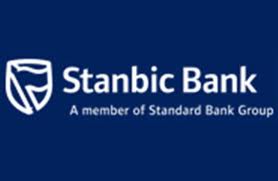Stanbic IBTC Bank, in partnership with the Subsidy Reinvestment and Empowerment Programme (SURE-P) Maternal and Child Health (MCH) Project, has launched Moni for my Phone, a cash transfer platform designed to enhance financial inclusion and boost Nigeria’s cashless policy.
 It is part of a programme being implemented in the Federal Capital Territory (FCT) and 17 states in support of SURE-P MCH’s demand-side intervention in the health sector.
It is part of a programme being implemented in the Federal Capital Territory (FCT) and 17 states in support of SURE-P MCH’s demand-side intervention in the health sector.
The service, rolling out in selected primary healthcare centres across the country, will enable rural women living in rural areas and hard-to-reach locations to receive cash through Stanbic IBTC’s mobile money service.
This is intended as an incentive for greater accessibility and utilisation of maternal and child health services.
Speaking at the launch at Dobi Primary Health Care Centre, Gwagwalada, Abuja, the Executive Director of Personal and Business Banking at Stanbic IBTC Bank, Obinnia Abajue, said the partnership is another major way to leverage evolving technologies and partnerships to enhance value propositions and bring affordable financial services closer to Nigerians.
The service will leverage on Stanbic IBTC Bank’s bulk payment solutions to transfer money seamlessly and instantly into mobile money accounts.
“We are very pleased to partner with SURE-PMCH Project on this strategic initiative. The partnership will help in actualising our goal of enhancing access to mobile money services by more Nigerians through the Stanbic IBTC mobile money platform.
“This collaboration provides another entry point for fast and convenient means of sending and receiving money, and further demonstrates our commitment to continuously deliver innovative products and solutions, part of which includes enhancing the robustness of our mobile banking and mobile payments systems.”
Ado Muhammed, the Executive Director and Chief Executive Officer of National Primary Health Care Development Agency said SURE-PMCH builds on the gains of the Midwives Service Scheme (MSS) and utilises a combination of supply and demand-side interventions to provide health services.
States where the programme will be implemented include Abia, Anambra, Bauchi, Bayelsa, Benue, Delta, Ebonyi, Ekiti, Enugu, Kaduna, Kogi, Niger, Ogun, Oyo, Sokoto, Taraba, and Zamfara.
















